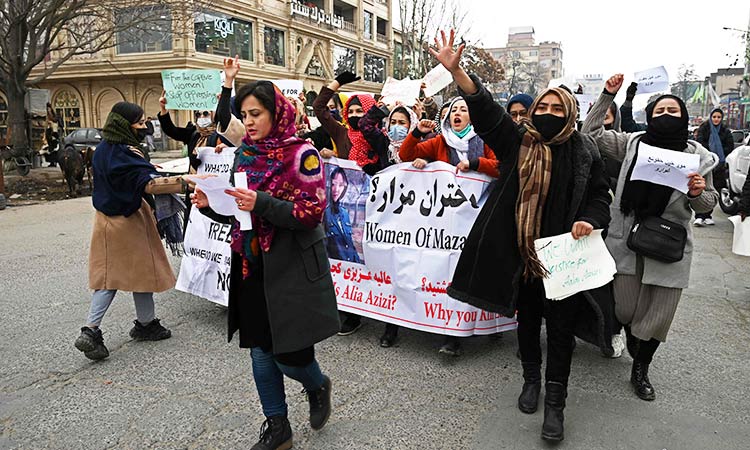JANUARY 18, 2022

A poster for a protest planned against Malaysia’s anti-corruption chief.
Malaysia’s Securities Commission on Tuesday said an investigation into allegations of improper stock trading by the country’s anti-corruption chief was inconclusive, a finding likely to further rile government critics who are planning a protest against the official this weekend.
In an immediate response to the capital markets regulator’s decision, Azam Baki, the chief commissioner of the powerful Malaysian Anti-Corruption Commission (MACC), framed the probe’s findings as conclusive that he did not commit an offence.More from AsiaOneRead the condensed version of this story, and other top stories with NewsLite.
He said he was grateful for the decision and would “continue to fight corruption in the country without fear or favour”.
Azam, 58, has dominated headlines for weeks since a whistle-blower revealed he owned stocks of publicly listed companies well above the 100,000 ringgit (S$32,107) threshold set for civil servants.
The saga took a twist after Azam revealed in a press conference that it was his brother Nasir who purchased the shares with his trading account.
While the Securities Commission launched an investigation, Azam and senior MACC officials dug in their heels – saying that the claims against the top graft-buster were motivated by “revenge politics”.
On Tuesday, the Securities Commission said its investigation had explored whether there had been a breach of rules that require a trading account to be “opened in the name of the beneficial owner or authorised nominee”.
“The Securities Commission has concluded its inquiry and based on the evidence gathered, the Securities Commission is not able to conclusively establish that a breach of Section 25(4) [of the Securities Central Depository Act] has occurred,” the regulator said.

The development came as Prime Minister Ismail Sabri Yaakob’s critics sharpened their knives, with opposition MPs angered by the abrupt postponement of a select committee meeting that was to look into the saga.
Parliamentary officials said the proceeding scheduled for Wednesday was indefinitely postponed due to “several legal issues” that required the deliberation of the legislature’s legal office.
Azam, a career graft-buster, had earlier filed a civil suit against anti-corruption activist Lalitha Kunaratnam over her reports about the stockholdings in December.
On social media, reports about the Securities Commission’s findings on Tuesday prompted dismay.
“Now everyone can use their relatives’ names to buy shares. No more insider trading rules also. Way to go [Securities Commission]! Yahoo!,” wrote Twitter user TJ.
Lim Guan Eng, the leader of the opposition Democratic Action Party (DAP), described Tuesday’s decision as an instance of “regulatory and enforcement failure”.
The regulator’s inability to act against Azam meant the section of the law governing proxy trading was “impotent and broken”, Lim said.
The decision would not only result in a loss of investor confidence but also raised questions on whether the Securities Commission was capable of performing its “statutory duty without fear or favour”, he added.
Lawyer Syahredzan Johan told This Week in Asia the ongoing episode was the biggest crisis for the MACC since the multibillion-dollar plunder of the 1MDB state fund.
The MACC has vast powers under the country’s anti-corruption laws but its reputation has been tarnished in recent years due to a widespread perception that the agency sat on its hands during the 1MDB scandal, which took place during the 2009-2018 tenure of ex-prime minister Najib Razak.
“To those who remember the 1MDB controversy circa 2015-16, the perception was that our institutions failed us with the various findings of ‘no wrongdoing’ and ‘everything is fine’ at the time,” said Syahredzan, a member of the DAP. “There are echoes of what happened then in the episode unfolding before us today.”
Cynthia Gabriel, executive director of the Kuala Lumpur-based Centre to Combat Corruption and Cronyism, said it was crucial for the Securities Commission to make public the details of its probe.
The activist added that a “full and independent probe” was required to establish whether public servant asset declaration laws were breached and to determine the source of funds used in the purchase of the shares.
Before the Securities Commission’s statement, civil society groups planning a protest against Azam on Saturday said they had three demands: his arrest, an immediate start to legal proceedings, and a restructuring of the MACC.
“The rakyat [‘people’] have been left for too long without a satisfactory explanation from the government and the authorities,” the groups and the youth wings of opposition parties said in a joint statement.
Read AlsoMalaysia's top anti-graft official to cooperate with regulator after share trading allegations

With the select committee hearing postponed, the groups questioned whether the people had further recourse to “ensure that those who have been given our trust can carry out their duties independently and fairly”.
The statement indicated the protest would be held at 11am on Saturday in front of the Sogo shopping centre in downtown Kuala Lumpur – a long-favoured starting point for anti-government demonstrations.
The police on Monday said they had not received applications for a rally from the organisers, and warned that any mass gathering would breach Covid-19 rules.
Prime Minister Ismail Sabri, whose office has supervisory powers over the MACC, has sparingly commented on the saga – indicating on Jan 8 that he hoped the matter would be looked into by the authorities with impartiality.
The prime minister’s office did not immediately comment following Tuesday’s developments. Gabriel, the anti-corruption activist, urged Ismail Sabri to “immediately convene a high-level task force to investigate the Azamgate fiasco”.


























